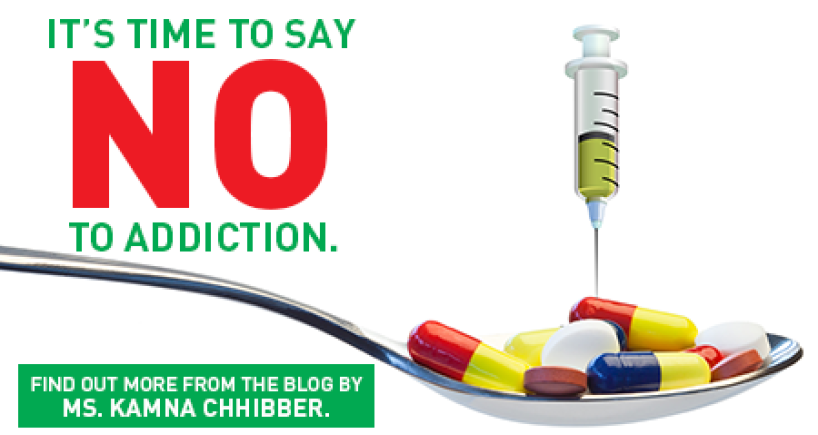
Adolescents And Addiction: Understanding The Problem And Learning To Say ?No?

Increasingly we hear about the rising levels of use and abuse of substances by young adolescents. These numbers have seen a steady rise. The more parents I interact with and the more teachers I meet attest to this rising problem and the menace it is creating. The impact it has is widespread, affecting multiple areas of an adolescent’s life.
The Reasons Adolescents Use Substances
If you ask an adolescent the answer they typically come up with is because friends use or that they want to experiment. This significant need to try something which is not permitted, to break boundaries that are set by parents and teachers, and to do something is that is cool and different is characteristic of adolescents many times. What usually starts as experimentation becomes a habit and one that is rather difficult to break.
Adolescents frequently do not understand or recognize the significant addictive potential of drugs and what starts as a harmless experimentation becomes a rather harmful drug addiction. They do not even realize that these drugs act as gateways to stronger ones and as one moves from one to the other or even consumes the same thing for long, it becomes very difficult to give them up.
The Impact of the Problem
The fact is that the substances adolescents use affect significant areas of their functioning. Whether one looks at the school or personal life, the effect drugs can have is pervasive. More many drugs are known to alter the ability to concentrate and focus and engage in academics. Most students who have been seen to use and abuse drugs are found to also lose on their grades with a steady deterioration as the usage increases.
At the same time, there develops a disconnection from individuals in their life. They frequently do not want to associate with others and as a result end up losing a lot of friends and change the group of people they hang out with. Simultaneously, they are seen to be reluctant about spending time with their families.
Learning to Say a “No”
Saying a “No” can be rather difficult. But I believe it is important. For all those who can potentially get trapped in this cycle of use and abuse, this is an essential step. Frequently you are not able to say a “No” to those around you or even to your own self. This makes it very complex for you and to be able to tackle such a situation you need to be assertive.
Being assertive comes from having a belief system and also being able to back one’s own self. This essentially translates into having conviction in your own thought processes. It also involves understanding that no one can force you into doing anything. Being assertive starts by doing the small things and then building it up over time. So it is not something that can be exclusively restricted to drug use but also involves being able to stand up for your own self and what you think and feel for all sorts of things and in a plethora of situations.
Saying “No” a lot of times can seem tough and you may think that you would be isolated. But the fact is that most of these things are transitory and trying to fit in cannot be the reason to go on a path that you feel is not ok. At the end of the day, you would always find people who would be aligned with how you think and do things.
So don’t hesitate to stand for yourself and your views. Saying “No” to something which is harmful in the long run is imperative.



















